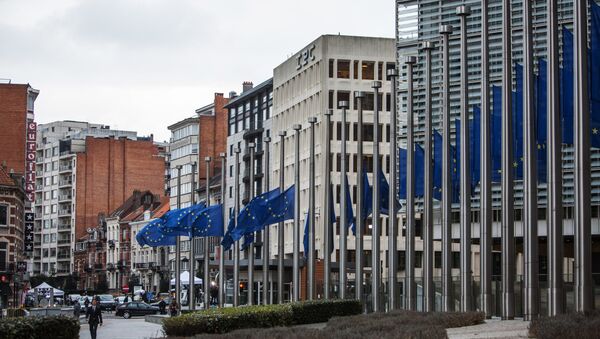As currently Brussels is focused on tackling the migrant crisis and minimizing the fallout of Brexit, it has fewer resources to resolve problems beyond the bloc, including in Ukraine, Syria, and the Nagorno-Karabakh region. These are the regions where Russia plays major role, the report read.
Moreover, in the near future, the EU is likely to pay less attention to promoting its political and economic integration initiatives in the post-Soviet states, including the Eastern Partnership program.
"Of particular import to Russia are the sanctions against it, which Moscow would like Europe to lift. The European Union first imposed the sanctions in March 2014, around the time that voters in Crimea resolved in a referendum to leave Ukraine and join Russia," according to Stratfor.
However, there is a growing number of those who want Brussels to ease or completely remove sanctions. Even before the Brexit vote, some "Russia-friendly countries," including Italy, Greece, and Hungary, called for greater discussion on extending sanctions against Moscow.
The leaders of those countries opposed the automatic prolongation of sanctions, and Italian Prime Minister Matteo Renzi even co-hosted a recent international economic forum with Russian President Vladimir Putin in St. Petersburg.
"Of course, the pro-Russia sentiment has not sufficed to break the EU unanimity in an actual vote. Nonetheless, it reveals growing uncertainty over the future of the sanctions – regardless of whether Moscow complies with the Continent's demands to implement the Minsk accords," the article read.
According to the author, "nothing will test EU unity more than negotiating Britain's exit from the bloc." As the EU has already agreed to prolong sanctions until the end of the year, discord within the bloc will not affect Russia immediately.
However, there is the possibility that the EU’s "long-standing consensus" may break up during the next vote in 2017, according to Stratfor.
Britain has been one of the most active supporters of tough measures towards Russia, but now its status in the EU is uncertain and other members may be ready to abandon such a position.
Even so, Moscow will act very cautiously because any of its important steps could backfire and strengthen the EU’s resolve against it, the report read.
Furthermore, Russia is not protected from the negative financial outcome of Brexit. Despite sanctions, Russia and the EU continue to conduct trade and financial activities with each other. The Russian economy has already been hit by falling oil prices, this is why Moscow is not interested in fueling a "major political and financial crisis" in Europe.
"Therefore, even as Moscow tries to capitalize on Europe's rifts in time for the next sanctions vote, it will be careful not to overexert its influence," the author concluded.




